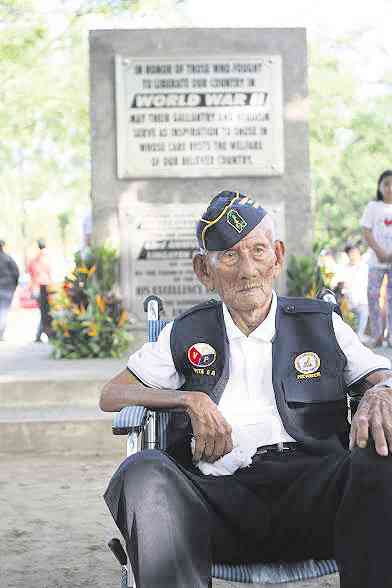Fewer World War II veterans at Lingayen rites
LINGAYEN, PANGASINAN—At the end of World War II in the Pacific in 1945, Pangasinan had the most number of war veterans in the country at more than 15,000.
But during the celebration on Monday of the 72nd anniversary of the Lingayen Gulf landing of the Allied Forces led by American Gen. Douglas MacArthur, only 76 of the 370 surviving veterans attended.
Pangasinan’s huge population of veterans was attributed to the fact that it was where American Lt. Robert Lapham and Lt. Edwin Ramsey recruited and trained guerrilla fighters after their escape from Bataan province in 1942.
“[But] most of the veterans in the province are already bedridden. Those who come to my office are already in their wheelchairs,” said Romeo Madriaga, regional head of the Philippine Veterans’ Affairs Office.
During the celebration, 13 surviving veterans, who are 100 years old, were honored but only Gregorio Erese of Tayug town was able to attend the ceremony.
Article continues after this advertisementRaymundo Cabrera, 91, said he had always looked forward to the annual celebration because it reunited him with other war veterans in Pangasinan.
Article continues after this advertisement“I wanted to be present there while I’m still alive. I want to see my former comrades,” said Cabrera, who was 18 when he joined the Philippine Scouts months before Japan surrendered to the Allied Forces in Camp John Hay in Baguio City on Sept. 3, 1945.
The celebration, initiated in 2008, began with a wreath-laying ceremony and a 21-gun salute honoring the veterans. After the ceremony, the veterans were treated to lunch and given financial assistance.
Gov. Amado Espino III offered to extend livelihood and educational assistance to the veterans’ families, in addition to the free hospitalization in provincial government hospitals.
Madriaga said each veteran receives a monthly pension of P5,000, a disability benefit of P1,700 and a hospitalization benefit of P1,500. They are also entitled to a burial benefit of P20,000.
Cabrera said when he was discharged from the Philippine Scouts in 1949, he did not receive anything from the United States government.
“I went home to Bautista [town], turned to farming and to every work I could find because I had no formal education,” he said.
When he married and started a family, he went to Metro Manila and took on odd jobs, serving as porter, driver and security guard. He also applied as a policeman but was not accepted.
“I worked hard just to send my five children to college. When my wife died, I had to work harder,” he said. —GABRIEL CARDINOZA
